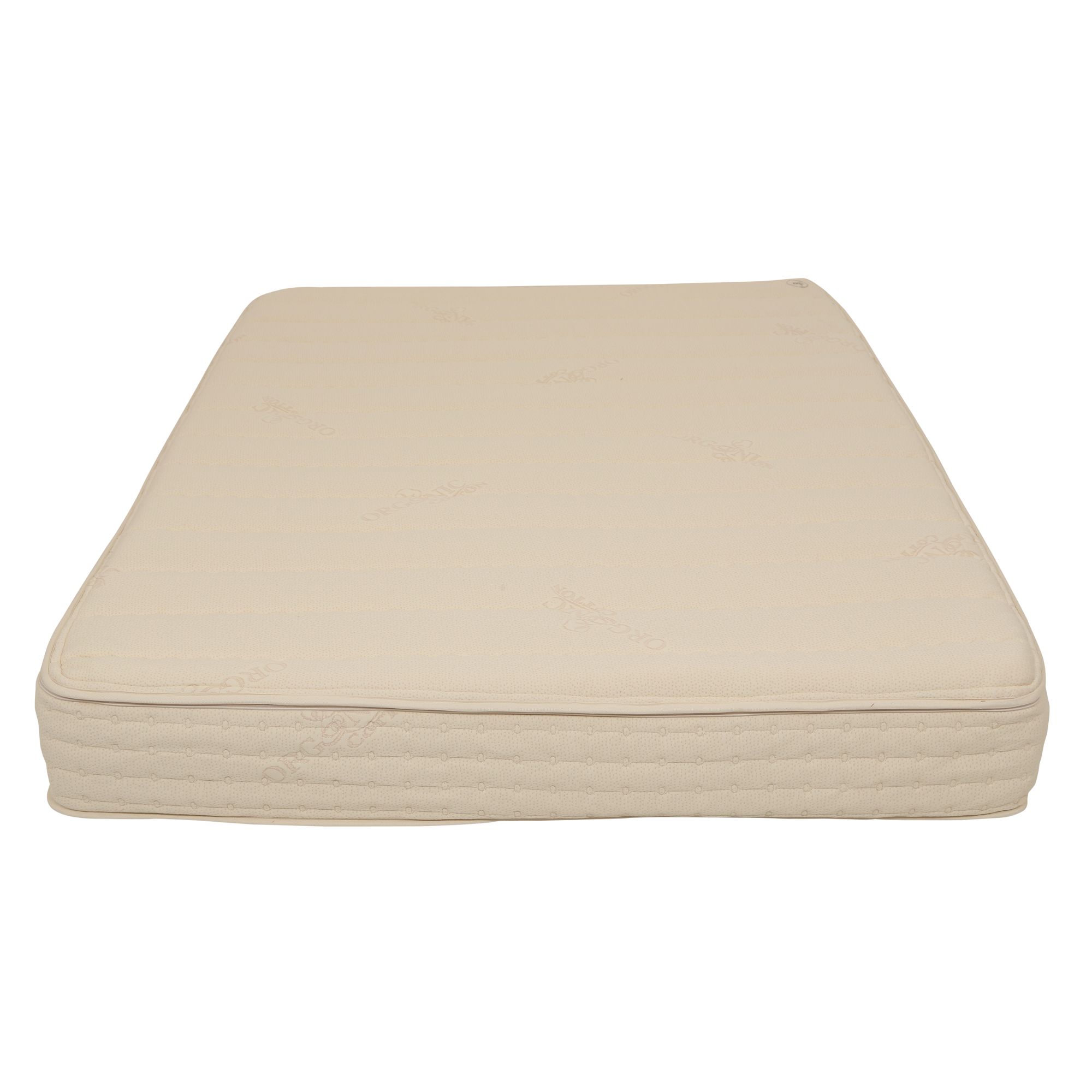The 6 Best Organic Mattresses in 2026 – Our Tried-and-Tested Non-Toxic Mattresses Are Better For Your Sleep and the Planet
Upgrade your sleep space with sustainability in mind

Emilia Hitching
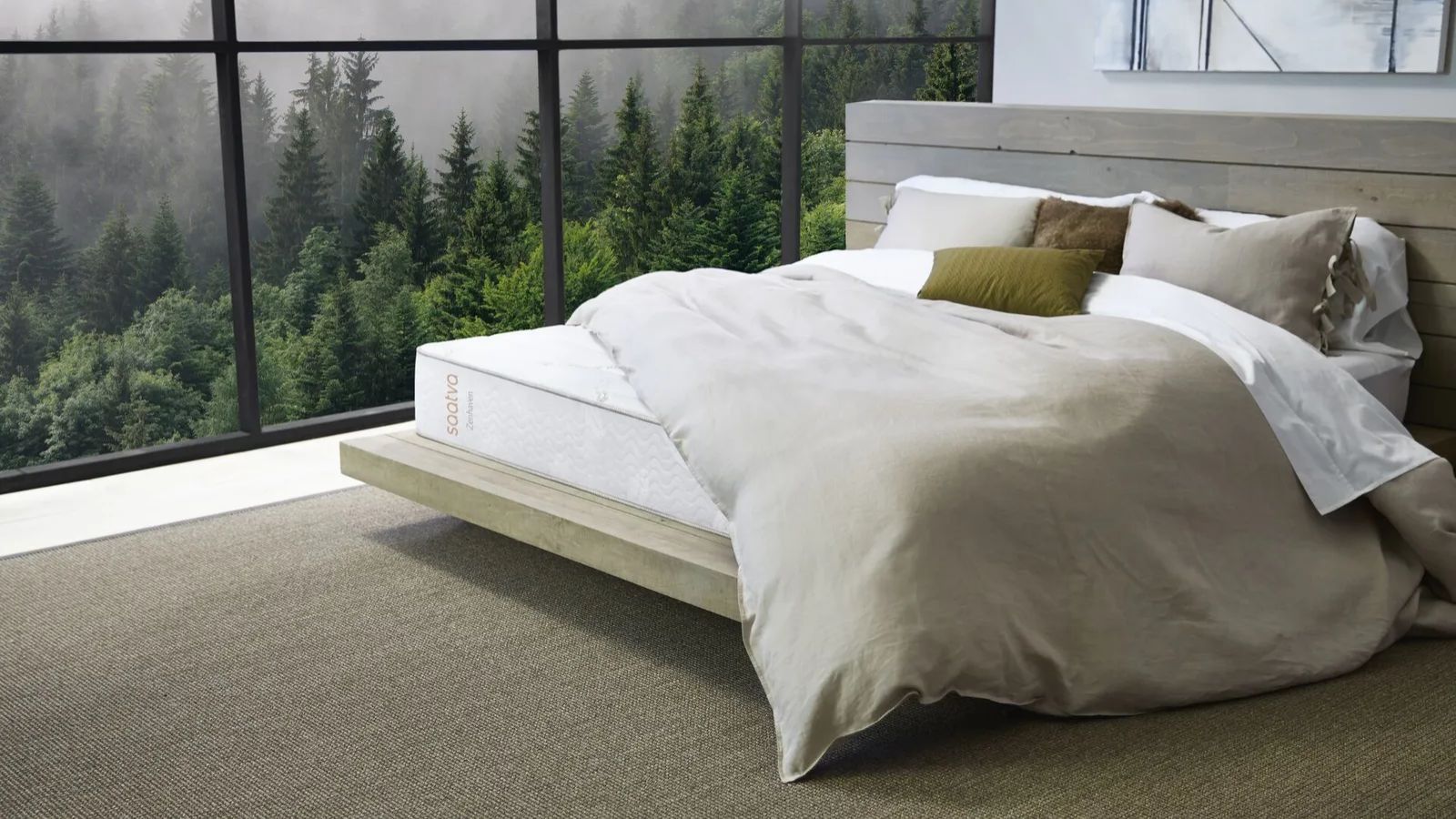
Design expertise in your inbox – from inspiring decorating ideas and beautiful celebrity homes to practical gardening advice and shopping round-ups.
You are now subscribed
Your newsletter sign-up was successful
Want to add more newsletters?

Twice a week
Homes&Gardens
The ultimate interior design resource from the world's leading experts - discover inspiring decorating ideas, color scheming know-how, garden inspiration and shopping expertise.

Once a week
In The Loop from Next In Design
Members of the Next in Design Circle will receive In the Loop, our weekly email filled with trade news, names to know and spotlight moments. Together we’re building a brighter design future.

Twice a week
Cucina
Whether you’re passionate about hosting exquisite dinners, experimenting with culinary trends, or perfecting your kitchen's design with timeless elegance and innovative functionality, this newsletter is here to inspire
14/01: As the WoolRoom Hebridean 3000 Mattress is no longer available, I've replaced it with the essentia Classic REM5 Active Organic Mattress as 'the best firm organic mattress.' I've also checked all the prices included in this guide, and added a section on the trade-offs to consider when shopping for the best organic mattress, and deal timing to keep in mind to nab our top picks at a reduced price.
If you're shopping for the best organic mattress, sustainability is likely important to you, and you're looking for quality, non-toxic switches around the home to prioritize your health and impact on the planet. And, where better to start than with your sleep space?
As we slowly inch our way towards warmer weather, organic mattresses, made of non-toxic, natural materials, are a comfortable alternative to synthetic foams, which tend to trap heat and moisture as you sleep. Non-organic foams can also pollute your indoor air quality with potentially harmful VOCs and are harder on the planet, so there's no time like the present to make the swap.
As the resident Sleep Editor here at Homes & Gardens, I lead a team of expert testers in the search to find the world's best mattress. Together, we've thoroughly tested more than 30 models, eight of which are organic, but only the top six have made the final cut.
For custom comfort and excellent customer service, the PlushBeds Botanical Bliss Mattress, available at PlushBeds, comes out on top, but you might find that another organic mattress detailed in this guide is a better fit for you.
The Best Organic Mattress – Our One-Minute Verdict
If you want to shop the best sustainable mattress brands for a non-toxic mattress this year, and have a sizeable budget, our top pick of the best organic mattresses is the PlushBeds Botanical Bliss Mattress, available at PlushBeds. This also sits at the top of our best luxury mattress guide, too.
Alternatively, if you're a side-sleeper after a great organic mattress, we recommend the Saatva Zenhaven Latex Mattress, available at Saatva. If you just want an affordable green mattress that delivers on its promises, the Earthfoam Organic Mattress, available at Earthfoam, is made of natural rubber, organic wool and cotton, and costs just shy of $1,300 for a Queen.
For something firmer, the essentia Classic REM5 Active Organic Mattress, available at essentia, is the one for you, though it certainly doesn't come cheap. For a GOLS-certified latex mattress, go for the Avocado Green Mattress, available at Avocado.
Finally, if you suffer from back pain, the Naturepedic Chorus Organic Mattress, available at Naturepedic, is your best bet.
Best Organic Mattress − 6 Tested Options, At a Glance
Below, you'll find a bite-sized summary of each organic mattress, outlining what it costs and the most important pros and cons. To learn more about a particular organic mattress, keep scrolling or hit 'read more below' to skip to that section, where I've dropped the need-to-know specs on each eco-friendly mattress, before digging into the details of our testing experience.
Don't worry if you come across any unfamiliar terms – you can always cross-reference against my mattress jargon buster, and we will explain them as we go, too.
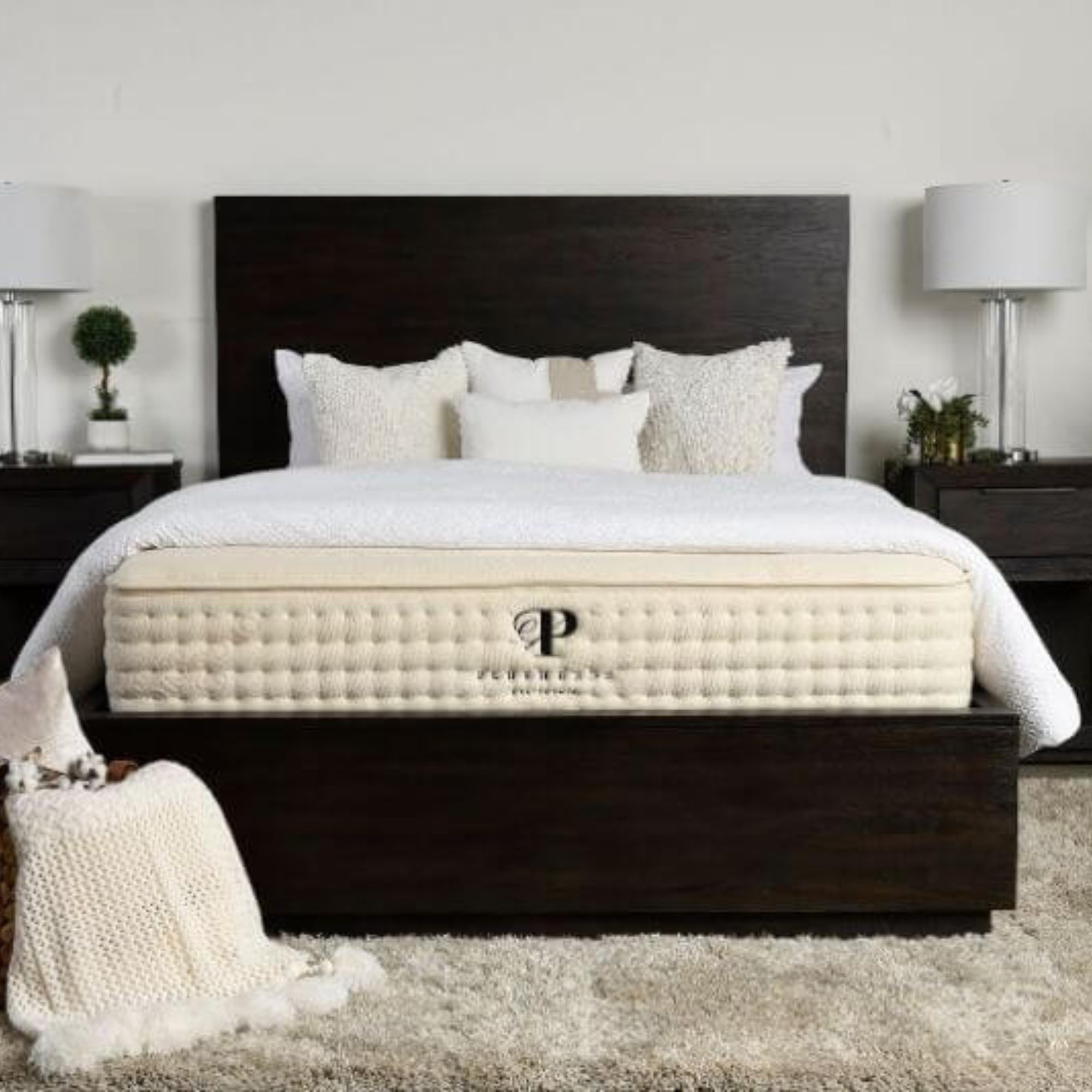
This organic mattress is handcrafted in California, filled with GOLS-certified organic latex and topped with GOTS-certified organic wool and cotton. It comes highly recommended by orthopedic specialists and chiropractors, as well as our expert tester, Alex Temblador.
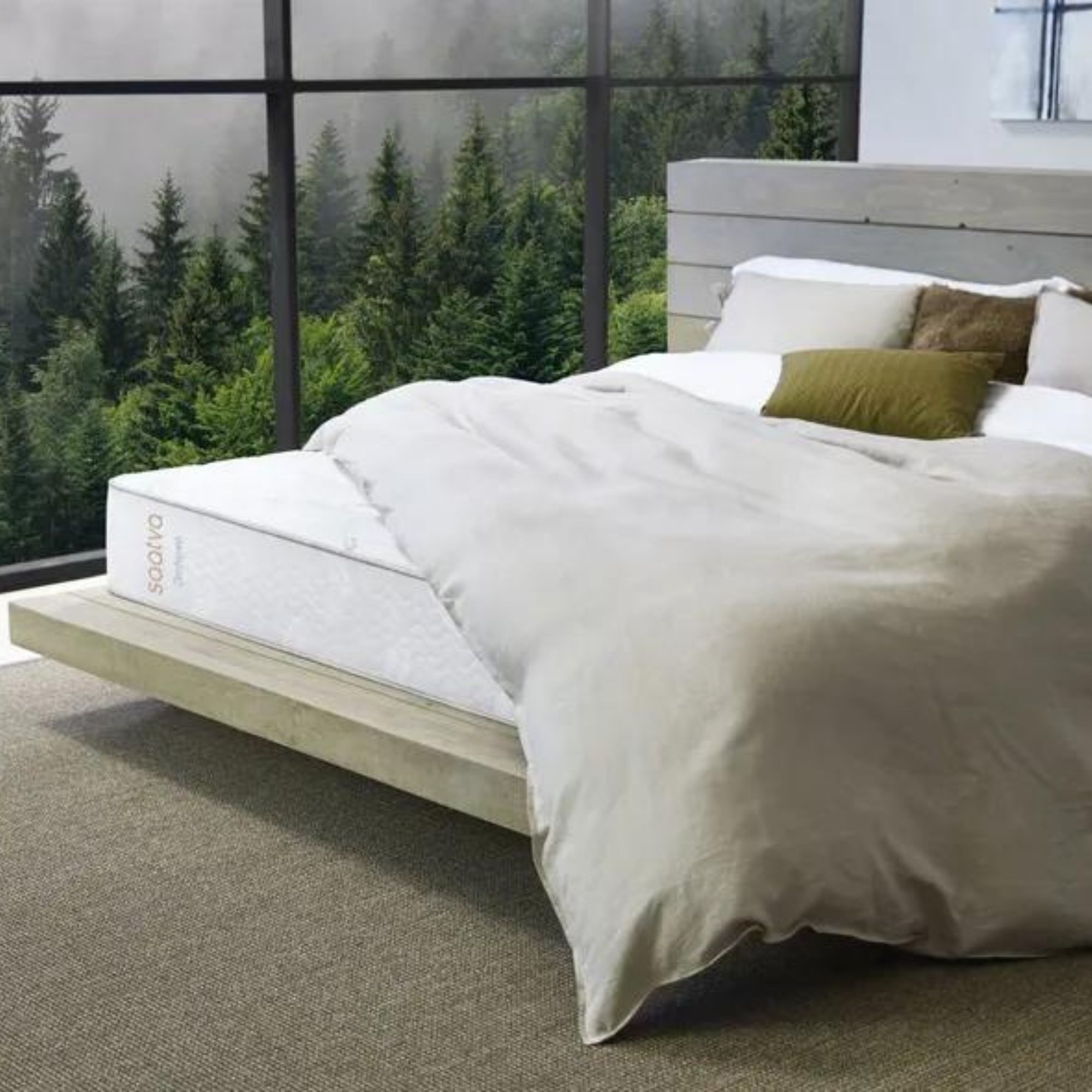
This dual-sided organic mattress is designed to suit all sleep positions, but expert tester Jill Waldbeiser particularly recommends the Gentle Firm feel for side sleepers. There's just enough give to cushion your joints while keeping your spine straight.
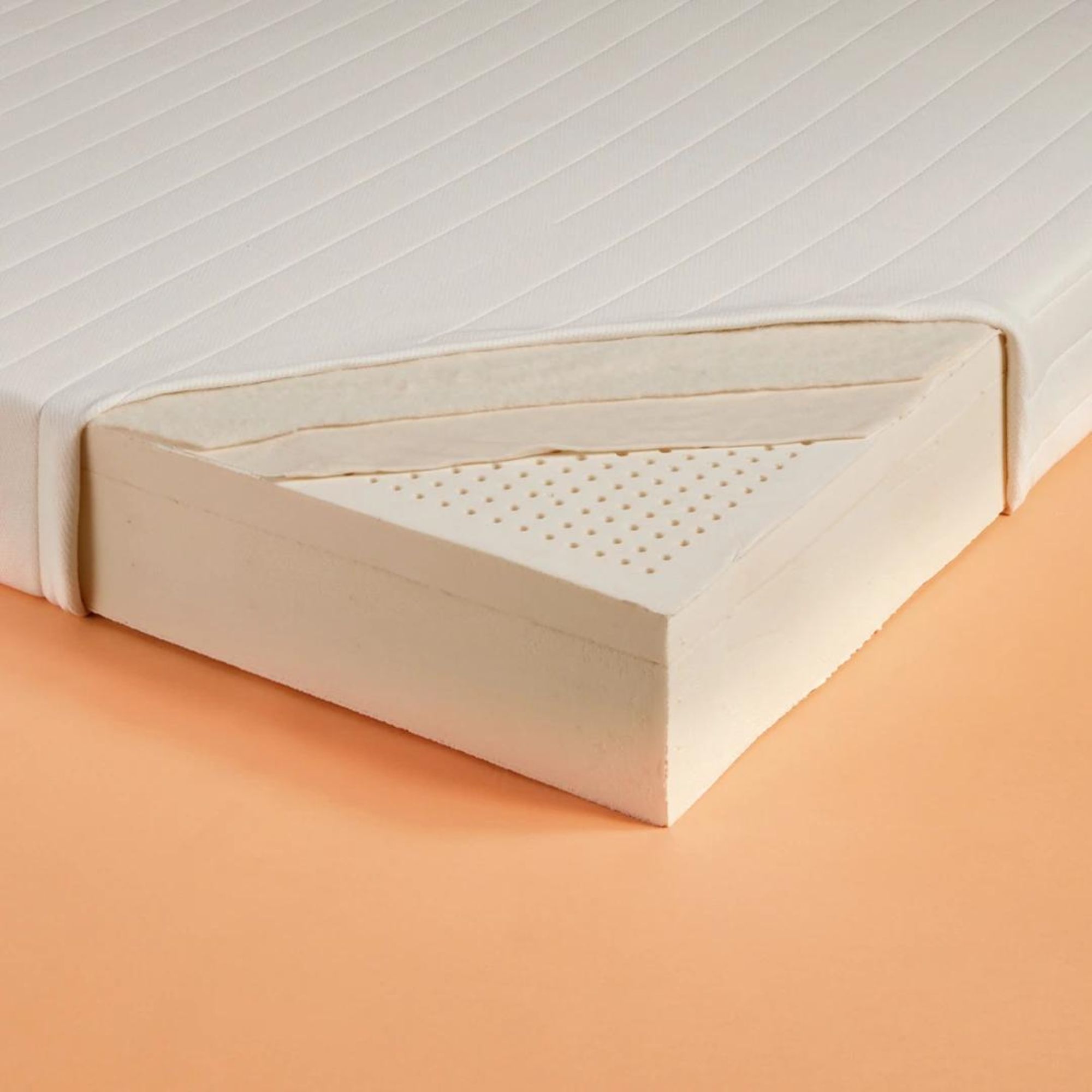
This is the only organic mattress I've ever seen that costs less than $1,500 for a Queen at full price. Earthfoam CEO Karl Shevick doesn't believe in mattress sales, as he wants his highly planet-friendly products to represent real value.
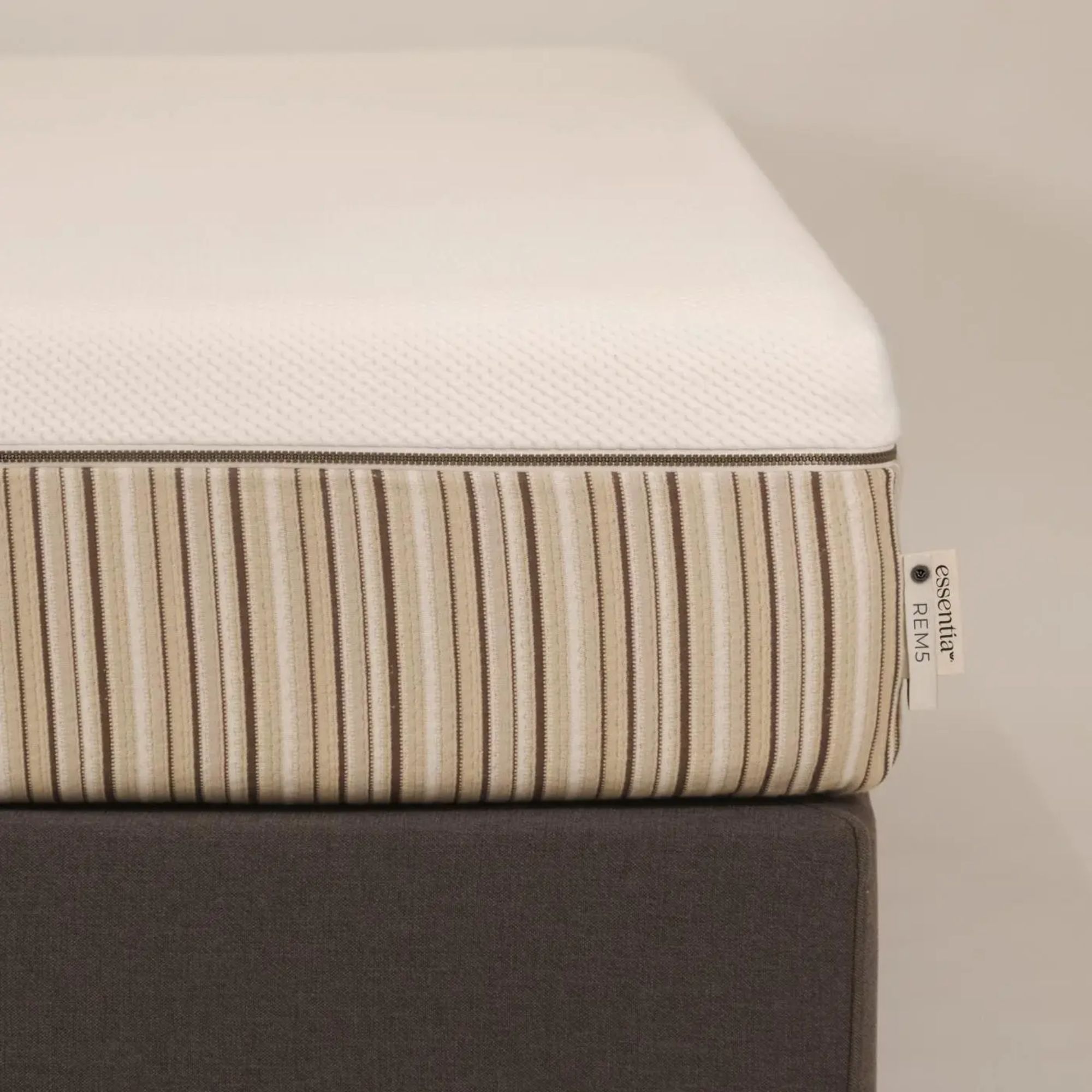
This non-toxic mattress offers a responsive sleep surface to support you in any position, as the high-density active foam formula automatically adapts to provide optimal spinal alignment and pressure relief.
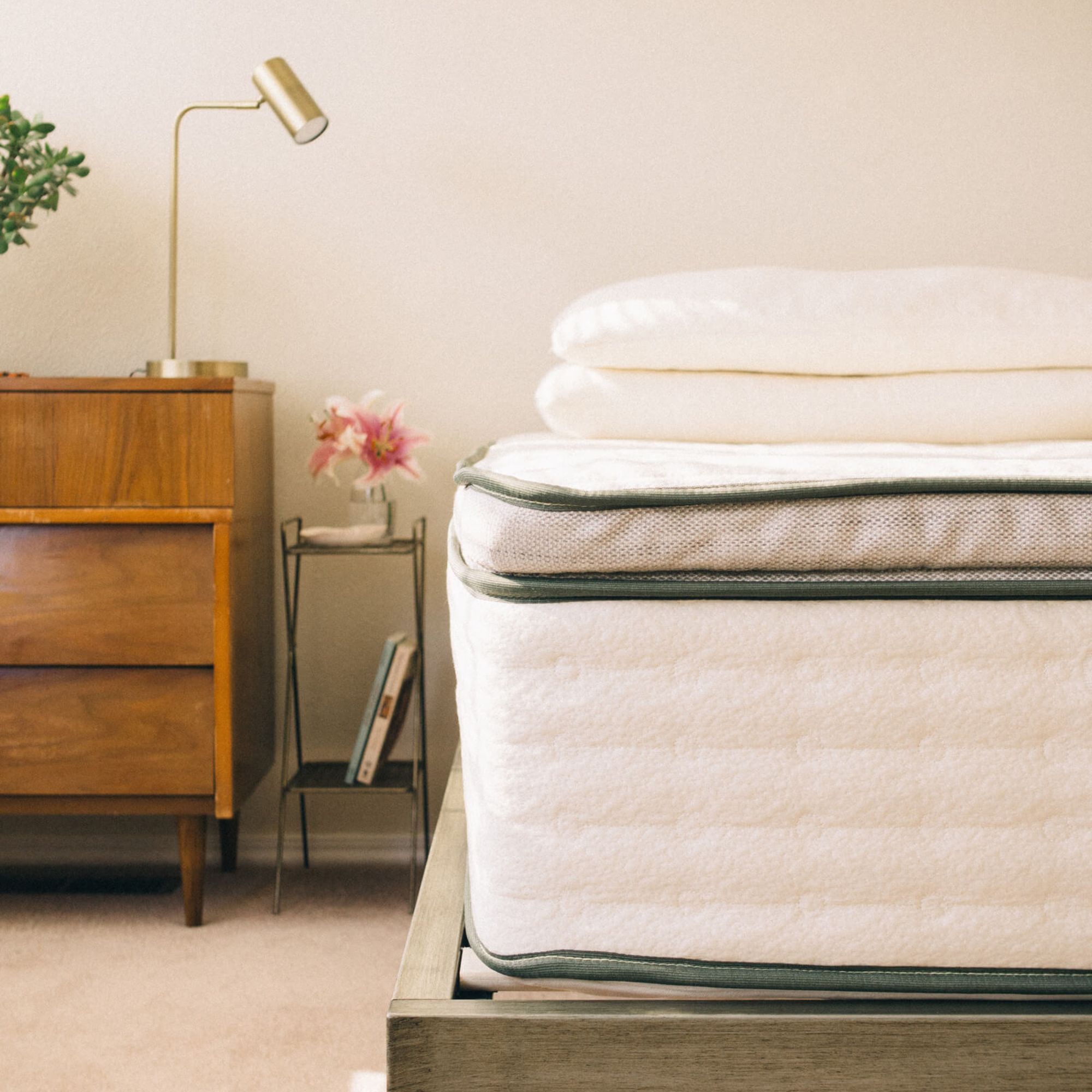
This organic latex mattress comes in three comfort levels: Firm, Medium, and Plush. The Firm mattress is filled with Dunlop latex, which feels solid and supportive, while the softer models feature Talalay latex, which is springy and responsive.
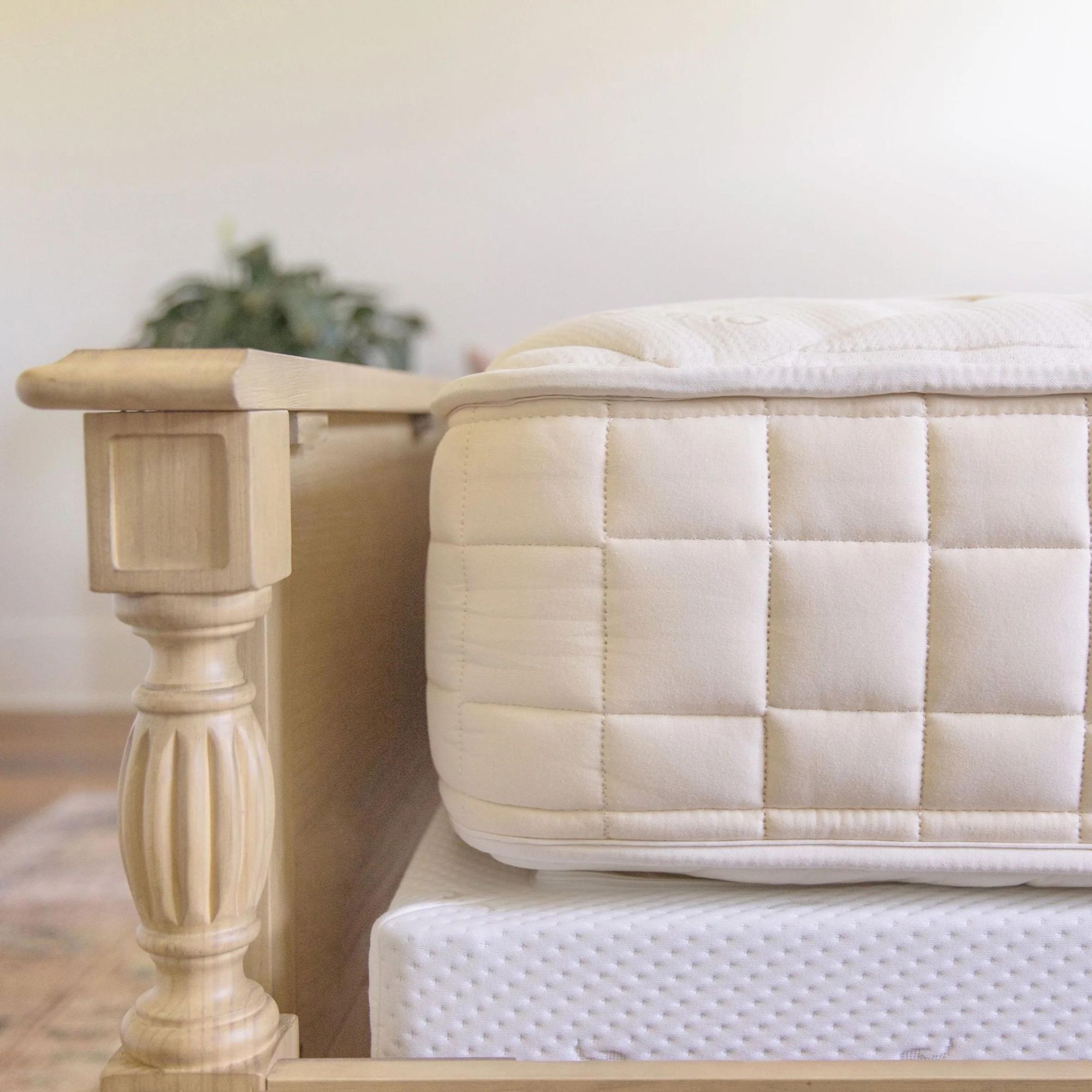
This is our best organic mattress for back pain. It's the common consensus among mattress testers and chiropractors that medium-firm is the best mattress firmness for most sleepers. The Naturepedic Chorus Mattress is firm enough to keep your spine straight but not so firm that it will put pressure on your neck and shoulders.
How to Choose an Organic Mattress That's Right for You
If you need help choosing from our selection of the best organic mattresses, here's what we recommend you consider to find out which mattress will suit you:
- Materials: Some natural mattress types are more environmentally friendly than others. Here's what you need to know about all the major mattress materials, including where they're found and how they're made:
- Memory foam: A subcategory of polyurethane foam. Likely to contain and emit volatile organic compounds, or VOCs, which could irritate your airways and pollute your indoor air quality.
- Latex: Natural latex comes from rubber trees, so it's a good option for eco-conscious shoppers looking for a GOLS-certified latex mattress. Synthetic latex is made from petroleum-based chemicals, so if you're keen to sleep on natural materials, make sure you read the fine print on the care tag.
- Innerspring: Lined with metal coils in the base layer. You might find organic materials, including cotton, wool, silk, or cashmere, in the comfort layer.
- Hybrid: Lined with metal coils in the base layer, then topped with some sort of foam. If you find memory foam in the comfort layers, the mattress isn't organic. If you find latex, it might be.
- Flame retardants: Also known as a fire barrier, a flame retardant is any sort of material that prevents or slows the spread of fire. One common flame retardant is fiberglass, because it's cheap and heat-resistant, but it can irritate your skin and eyes. If you've got sensitive skin, and you're keen to sleep on natural materials, I suggest you shop for an organic mattress with a wool or cotton flame retardant.
- Eco accreditations: With so many makes and models online, it's more important than ever to do your research before you buy. Here are the certifications to look out for:
- GOLS: Stands for 'Global Organic Latex Standard'. Certifies products made from organically grown, natural rubber latex. Ensures clear path and procedure from farm to factory.
- GOTS: Stands for 'Global Organic Textiles Standard'. Certifies products, such as wool and cotton, responsibly made from natural raw materials.
- GREENGUARD: Certified for low chemical emissions for better indoor air quality.
- Fairtrade: Ensures decent working conditions and fair pay for farmers and workers.
- OEKO-TEX: There are two OEKO-TEX certificates. OEKO-TEX Standard 100 signifies that the materials in your mattress are non-toxic, but it doesn't mean that they're organic. OEKO-TEX Made in Green means that the materials and manufacturing process are inspected and independently accredited for sustainable practice.
It's also important to note that a non-toxic mattress is not the same as an organic mattress. 'Organic' is a highly regulated term, so an organic mattress must be independently verified and certified by the USDA (United States Department of Agriculture). Some USDA-approved mattresses are 100% organic (completely free from all chemical fertilizers and pesticides), while others are made with organic ingredients.
'Non-toxic' is an unregulated term, which means that any mattress brand can use it without fear of repercussion. The term indicates that a chemical-free mattress is free from toxic ingredients such as parabens, petroleum, formaldehyde, and more.
Here's how our top picks compare:
| Header Cell - Column 0 | Price | Firmness | Thickness | Type | Sizes | Sleep trials | Warranty | Delivery | Eco accreditations |
|---|---|---|---|---|---|---|---|---|---|
PlushBeds Botanical Bliss Organic Latex Mattress | $2,849 - $3,848 | Medium, Medium-Firm, Dual Firmness, Custom Firmness also available | 9", 10", 12" | Organic latex | Twin, Twin XL, Full, Queen, King, California King, Split Queen, Split King, Split California King | 100 nights | Lifetime | Free delivery | GOLS certified organic latex, GOTS certified organic cotton, and GOTS certified organic wool. It is also GREENGUARD Gold certified. |
Saatva Latex Hybrid Mattress | $2,049 - $4,849 | Dual-sided (Gentle Firm and Luxury Plush) | 10" | Latex hybrid | Twin, Twin XL, Full, Queen, King, California King, Split King, Upper-Flex King | 365 nights | Lifetime | Free in-room delivery and setup | GOLS certified latex foam, eco-INSTITUT certified latex foam, and GREENGUARD Gold certified. |
Earthfoam Organic Mattress | $799 - $1,799 | Medium, Firm | 8.5" | Organic latex | Twin, Twin XL, Full, Queen, King, California King | 100 nights | 10 years | Free shipping and returns | GOTS certified, GOLS certified, certified Fair for Life - Fairtrade, and Oeko-Tex Standard 100. |
essentia Classic REM5 Active Organic Mattress | $3,720 - $7,199 | Medium-firm | 10" | Beyond Latex™ organic foam | Twin, Twin XL, Full, Queen, King, California King | 120 nights | 20 years | Free shipping | Every material used in the GOLS and GOTS certified organic factory is non-toxic, ethically sourced, and certified organic. |
Avocado Green Mattress | $1,499 - $2,899 | Firm, Medium, Plush | 11", 13", 15.5" | Latex hybrid | Twin, Twin XL, Full, Queen, King, California King | 365 nights | 25 years | Free shipping | GOLS-certified organic latex, GOTS-certified organic wool and cotton, and FSC-certified Pure Talalay latex on the Box-Top Plush model. |
Naturepedic Chorus Mattress | $1,499 - $2,999 | Medium-firm | 10" | Innerspring | Twin, Twin XL, Full, Queen, King, California King | 100 nights | 25 years | Free shipping | GOTS certified, GOLS certified, and latex that meets Forest Stewardship Council (FSC) standards. Also Environmental Working Group (EWG) verified, MADE SAFE certified, GREENGUARD Gold and Organic Content Standard (OCS) certified, and a Gold Certified Green Business by Green America. |
The Best Organic Mattress Overall

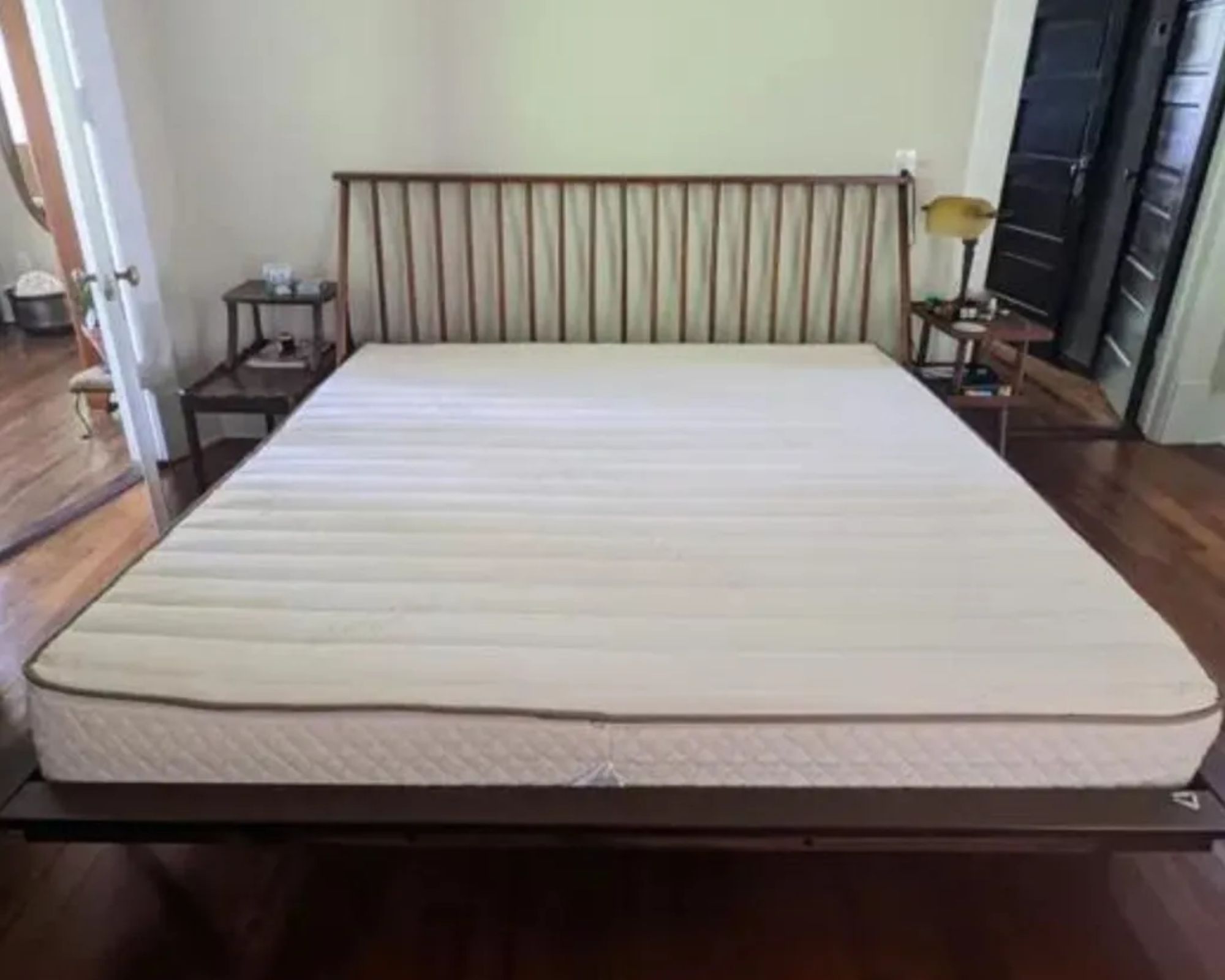
1. PlushBeds Botanical Bliss Organic Latex Mattress
Specifications
Reasons to buy
Reasons to avoid
The PlushBeds Botanical Bliss Organic Latex Mattress, available at PlushBeds, is made to order to minimize waste, handcrafted by a team of 26 skilled sewers and delivered in as little as five business days – talk about a quick turnaround. They make each non-toxic mattress to your exact specifications: You get to choose your ideal size, firmness, and height.
One of our expert Sleep testers, Alex Temblador, slept on and reviewed the PlushBeds Botanical Bliss Organic Latex Mattress a couple of summers ago, and she still raves about it.
'Since I struggle with back and hip pain, I opted for the medium-firm comfort level to better support my body,' she says. On a firmness scale of one to 10, I'd give this mattress a seven. It's supportive without feeling hard, the way that synthetic foam often does. I'd recommend it for all sleep positions, whether you lie on your front, back, or side.'
This natural mattress is filled with organic latex arranged in an open-cell structure, which leaves plenty of room for air to flow. It's topped with organic wool and cotton to enhance thermoregulation and moisture-wicking. Alex sleeps in a hundred-year-old house in North Texas, so she needs a mattress to keep the night sweats at bay. 'Since I sleep with a health tracker band, I can confirm that my body temperature stayed pretty constant overnight,' she says.
There is, however, one major practical point to bear in mind before you buy. Natural latex is very heavy, so you might want to ask a friend to help you lift, flip, or rotate the PlushBeds Botanical Bliss Organic Latex Mattress.
In fact, this mattress is so heavy that PlushBeds delivers it in two boxes, and the base layer and the comfort layer arrive separately. 'At first, I found this a little frustrating,' says Alex, 'but once I followed the PlushBeds guidance on how to assemble your latex mattress, I'd set up my mattress in minutes.'
Attribute | Notes | Score (out of 5) |
|---|---|---|
Pressure relief | Suitable for all sleep positions | 5 |
Thermo-regulation | Suitable for a 100-year-old house in Texas | 4 |
Motion isolation | Excellent | 5 |
Edge support | Soft and squishy around the sides | 2 |
The Best Organic Mattress for Side Sleepers
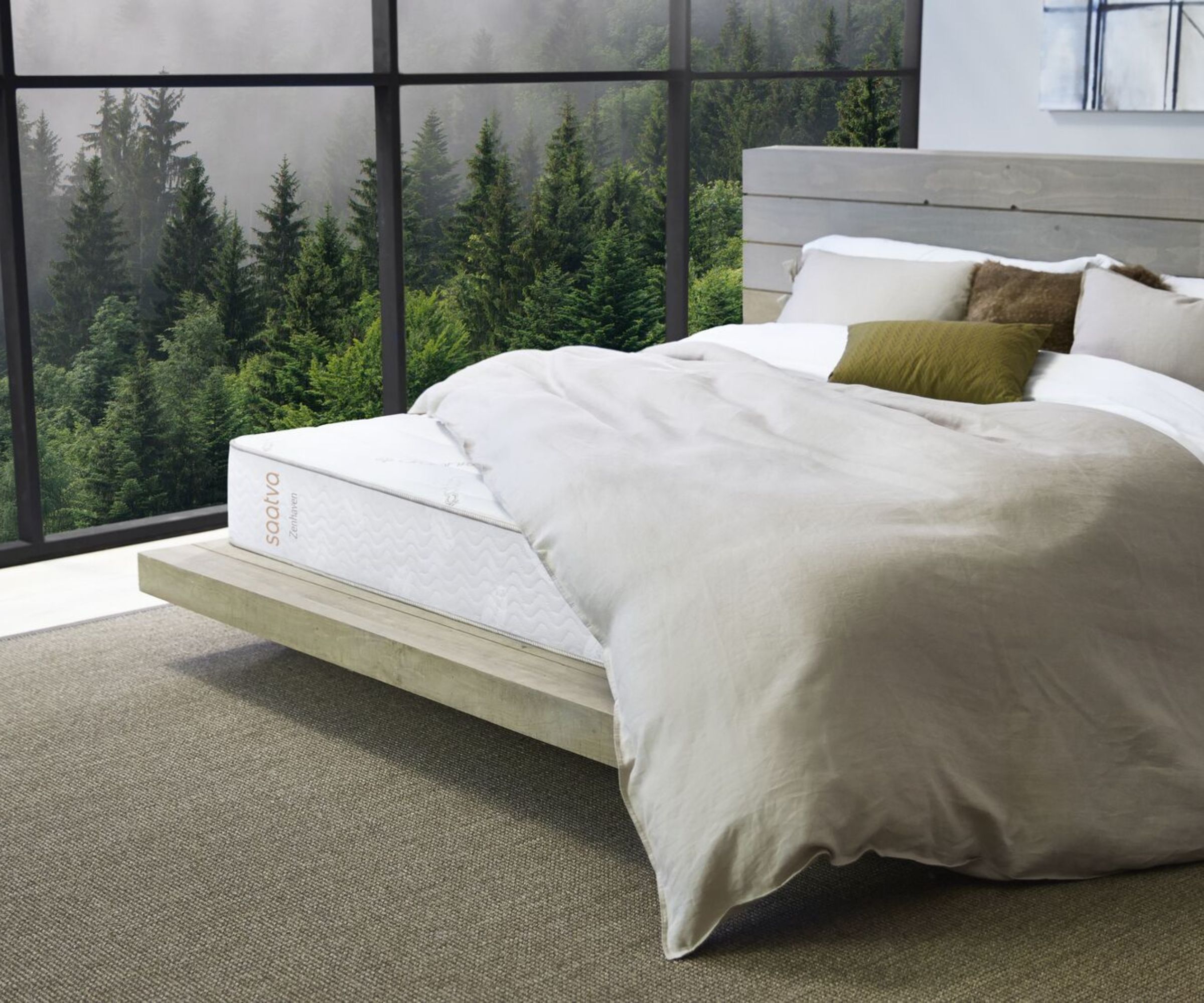
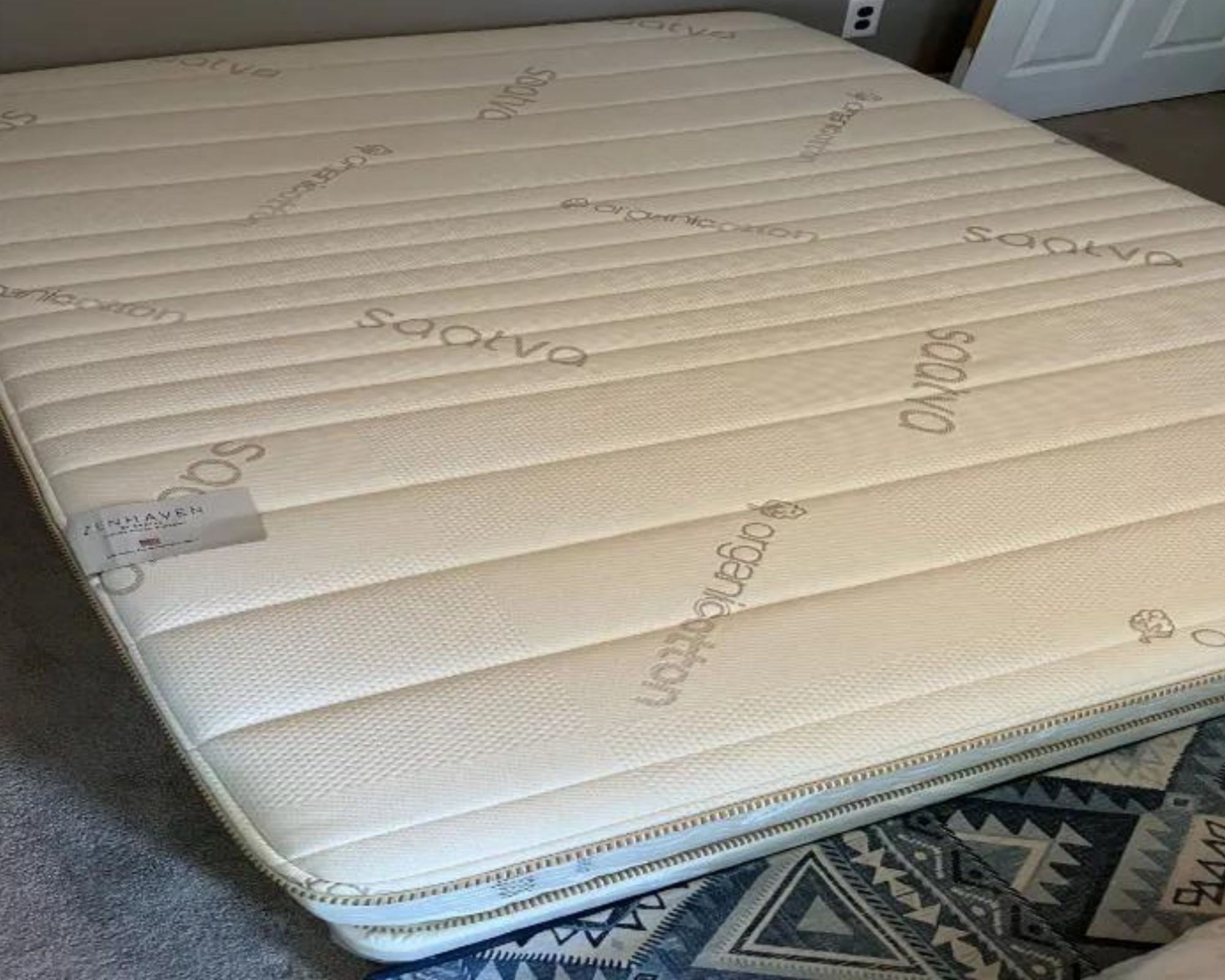
2. Saatva Zenhaven Natural Latex Mattress
Specifications
Reasons to buy
Reasons to avoid
This Saatva Zenhaven Latex Mattress, available at Saatva, is a dual-sided organic mattress. One side is Gentle Firm (perhaps a seven on a mattress firmness scale of one to 10), while the other is Luxury Plush (more like a five or a six).
'The whole point of a flippable mattress is to support multiple sleep positions,' explains expert tester Jill Waldbeiser, who tested and reviewed the Saatva Zenhaven Latex Mattress. 'I'd recommend the Gentle Firm side for back and stomach sleepers and the Luxury Plush side for side sleepers and anyone who appreciates a softer surface.'
After trying both sides of the GOLS-certified latex mattress, Jill prefers the Gentle Firm feel. 'Like any latex mattress, the Saatva Zenhaven has a bit of bounce, which gives you the feeling that you're lying on top of the mattress, rather than sinking into it,' she explains. 'The quilted top adds another layer of comfort, while the lumbar [lower back] support helps to evenly distribute pressure and keep your spine aligned.'
Made to mold to the shape of your body and take the weight off your joints, latex is renowned for its natural pressure-relieving properties. I'd recommend the Saatva Zenhaven Natural Latex Mattress for anyone who suffers from chronic aches and pains, while the natural breathability of the open-cell structure is good news for hot sleepers.
There are only two things I don't like about the Saatva Zenhaven Natural Latex Mattress. First off, it's extremely heavy, clocking in at 125 lbs for a Queen. Secondly, like many organic mattresses, it's very expensive.
Attribute | Notes | Score (out of 5) |
|---|---|---|
Pressure relief | Lumbar support to leep your spine aligned | 5 |
Thermo-regulation | Keeps Jill cool through perimenopause | 5 |
Motion isolation | Latex has a bit of bounce | 4 |
Edge support | Solid and supportive around the sides | 5 |
The Best Affordable Organic Mattress
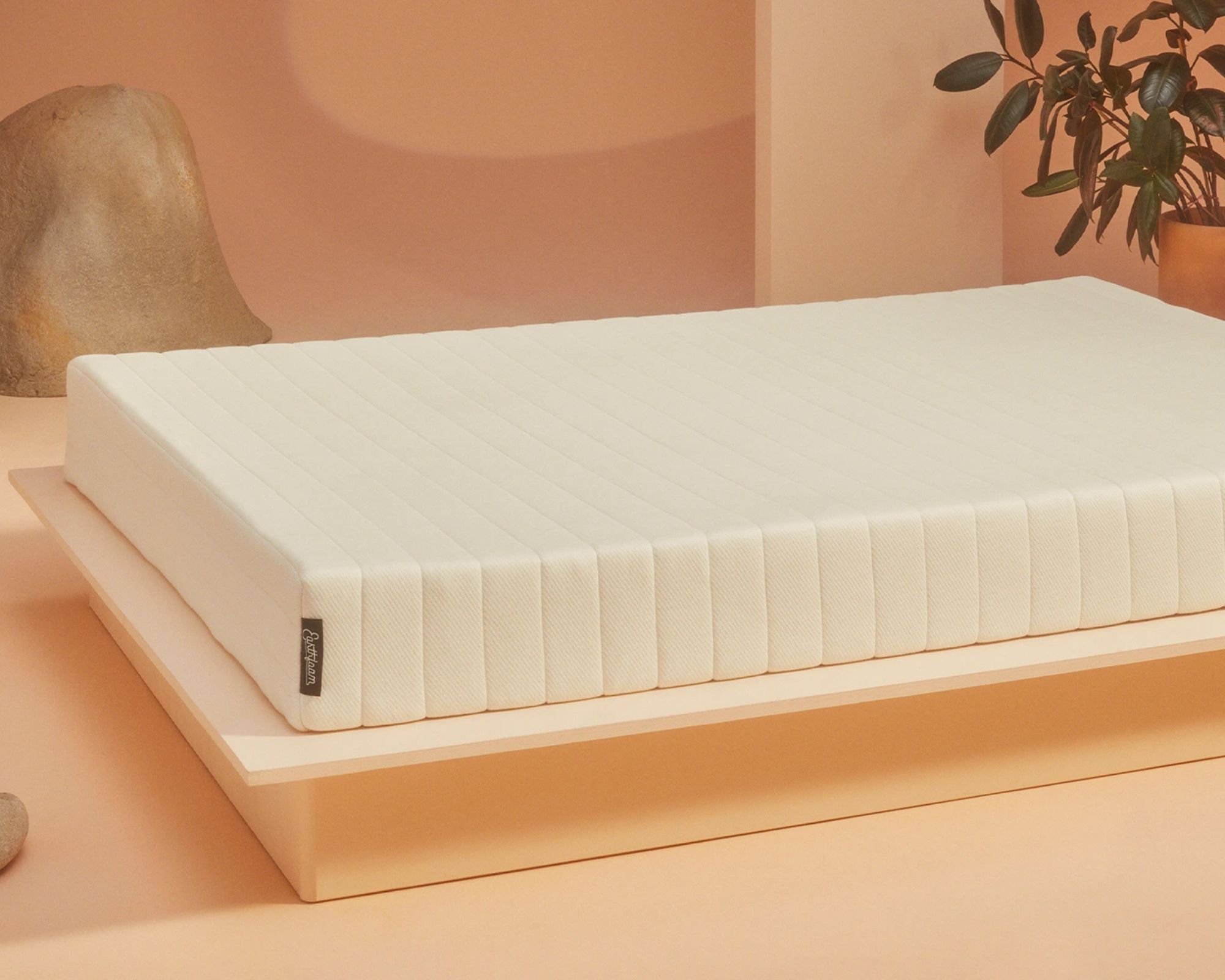
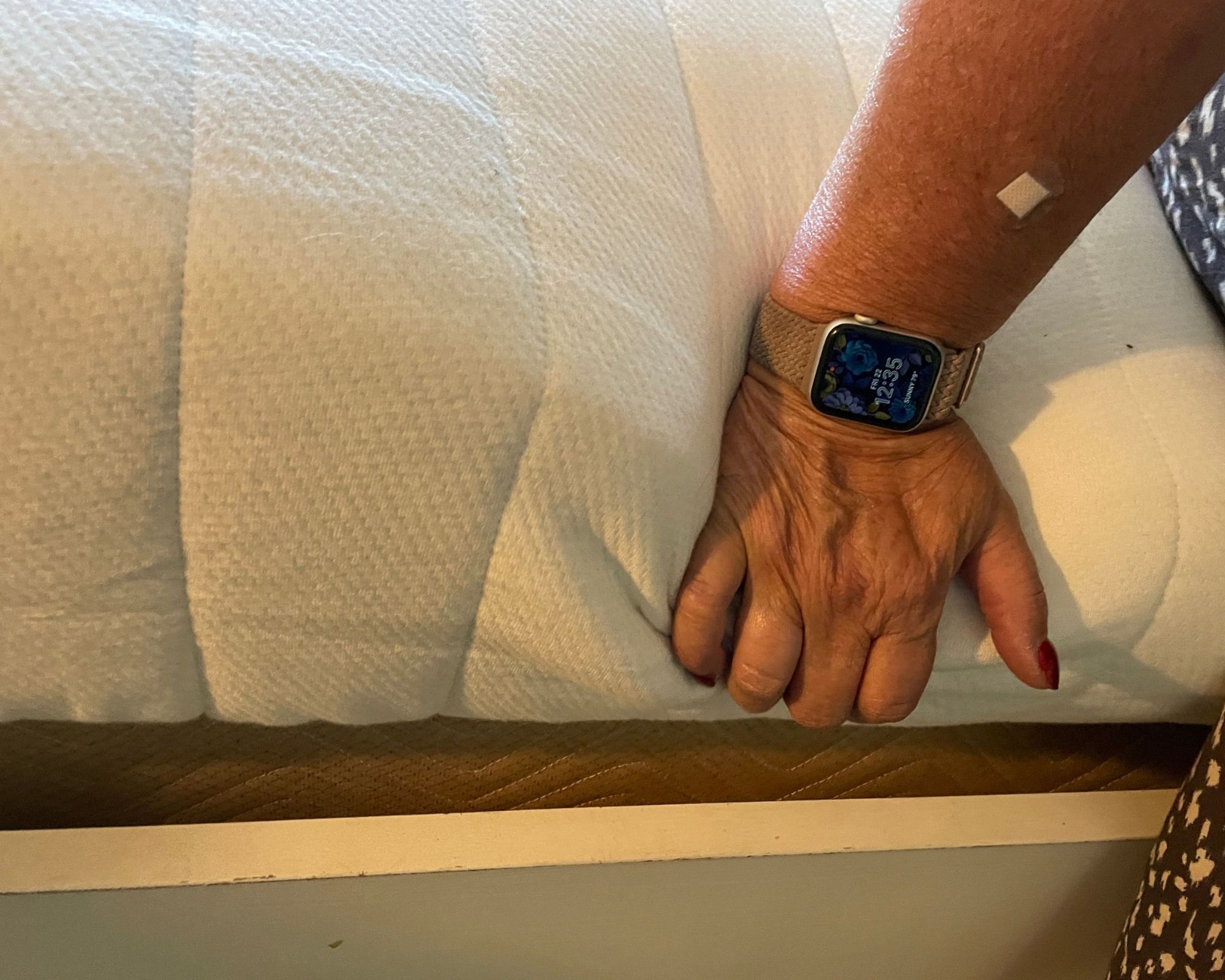
3. Earthfoam Organic Mattress
Specifications
Reasons to buy
Reasons to avoid
Making this list got me thinking – your standard organic mattress is seriously expensive. When you shop at PlushBeds, for example, you have to drop thousands of dollars just to get a Twin-sized bed. If you're buying on a budget, I suggest you steer clear of the big-name brands and consider the Earthfoam Organic Mattress, available at Earthfoam.
Made from natural rubber, tapped from trees, then frothed into foam, this mattress is breathable, durable, and sustainable. Out of all the mattresses on this list, the Earthfoam Organic Mattress boasts the most comprehensive eco-credentials. It's both a GOTS-certified mattress, owing to the wool and cotton, a GOLS-certified latex mattress, and the production process is certified Fair for Life.
The Earthfoam Organic Mattress boasts a 4.8 average star rating on the Earthfoam site. One stand-out review reads, 'I feel as if I'm sleeping on the world's most comfortable rock!' If you're a back or stomach sleeper and you appreciate firm support, or are looking for sturdy spinal support, then I recommend you opt for the Firm feel.
Our expert tester, Alex Frost, who reviewed the Earthfoam Organic Mattress, tried the Medium and found it a true medium.
Unfortunately, the Earthfoam Organic Mattress fell down on our motion isolation tests. 'I could feel my partner tossing and turning in bed beside me,' complains Alex. So, if you're looking for a latex mattress with minimal motion transfer, I recommend the Saatva Latex Hybrid Mattress instead.
Attribute | Notes | Score (out of 5) |
|---|---|---|
Pressure relief | Available in multiple firmness levels to suit each sleep position | 5 |
Thermo-regulation | Natural breathability of rubber, wool, and cotton | 5 |
Motion isolation | Some motion transfer | 2 |
Edge support | Solid support | 4 |
The Best Firm Organic Mattress
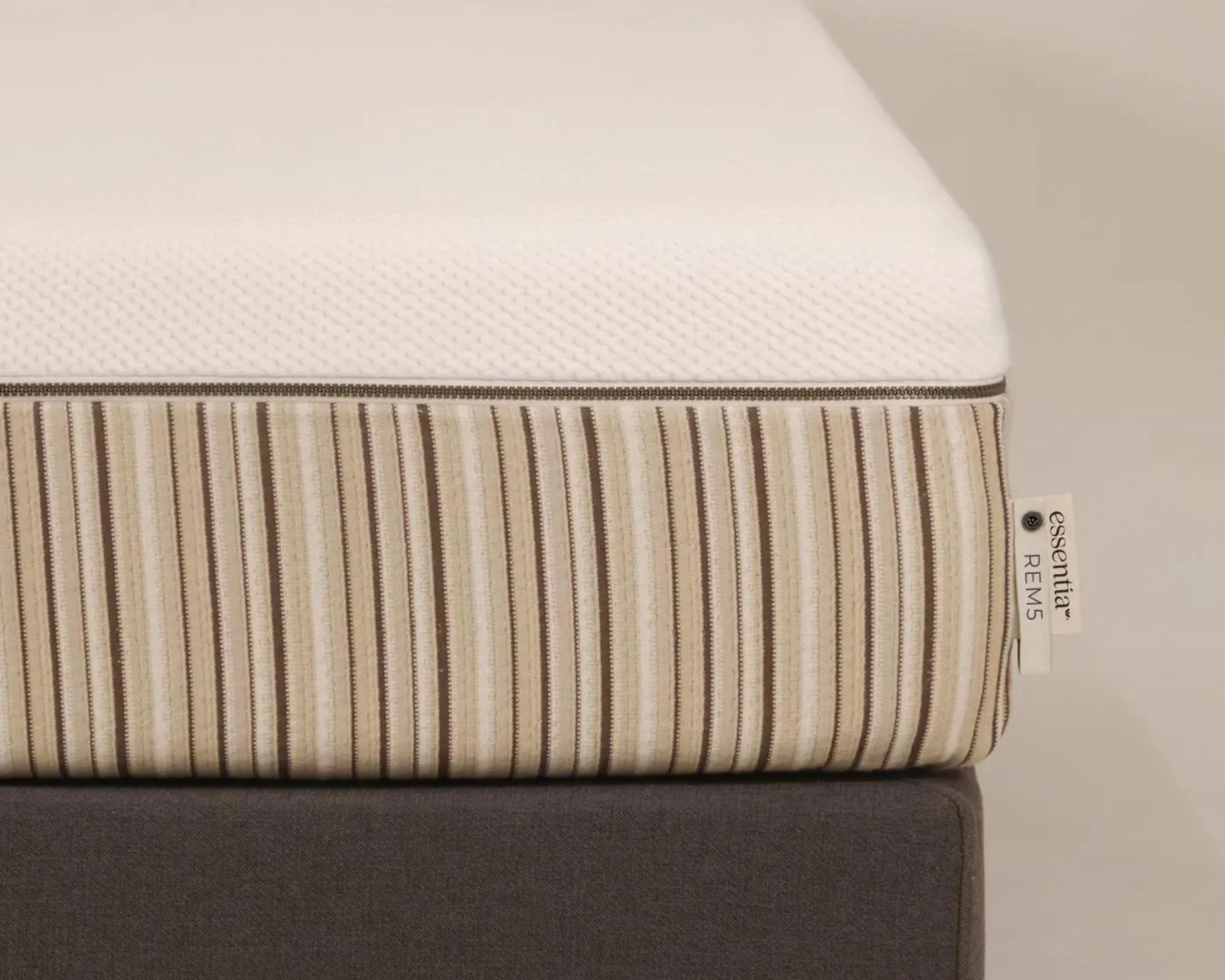
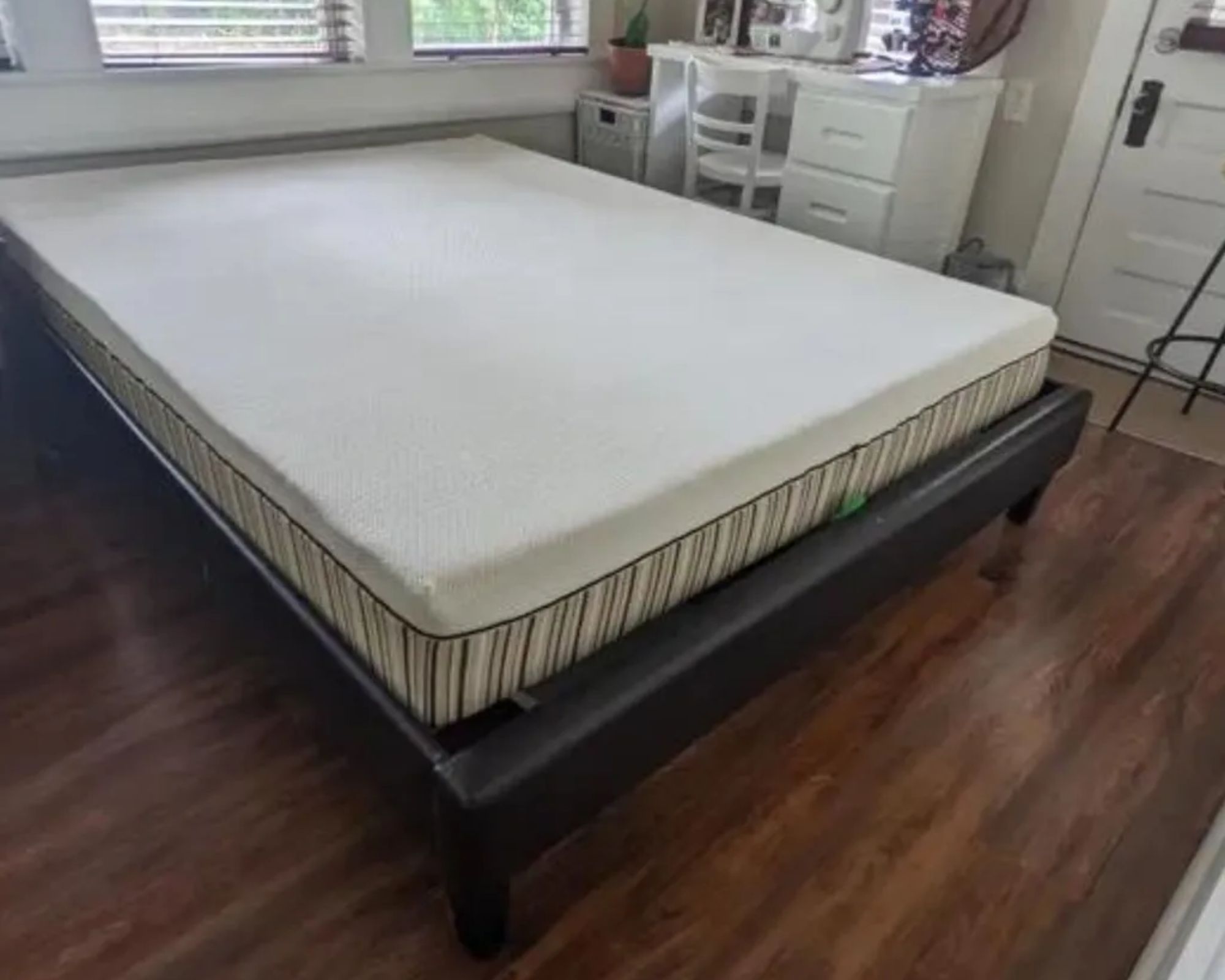
4. essentia Classic REM5 Active Organic Mattress
Specifications
Reasons to buy
Reasons to avoid
According to an expert panel of physical therapists and sleep scientists, the best mattress firmness for most sleepers is medium-firm. That's firm enough to stop your hips from sinking and keep your spine straight, but not so firm that your neck and shoulders are pushed uncomfortably against the surface.
For this, the organic essentia Classic Rem5 Mattress, available at essentia, is our top recommendation, and it's also the best organic mattress for hot sleepers, too.
Our expert tester Alex, who also tested and reviewed the essentia Classic Rem5 mattress, says that it impressively ticks all her boxes.
'Filled with organic latex, this firm bed kept me cool, aligned my spine, and minimized motion transfer for restful sleep,' she writes in her review. 'It comes in two firmness levels for custom comfort and two heights to fit any bed frame. Made without wool, it's even suitable for vegan shoppers.'
That being said, it's certainly expensive, at $4,627 for a Queen, but Alex does assure that, if you can, it's an investment worth saving for. 'If it weren't for the prohibitive price tag, I'd recommend this mattress to everyone I know,' she explains. 'As it stands, it's only suitable for shoppers with money to spare.'
This non-toxic mattress is also easy to unbox and set up yourself, which is a huge plus if you live alone. The only other thing to note is that Alex did experience some mattress off-gassing with this pick.
'It smelled like almonds – maybe there was something in the latex,' she says. 'Within a night or two, the smell cleared up, and that's when I started testing in earnest.'
Attribute | Notes | Score (out of 5) |
|---|---|---|
Pressure relief | Firm support for back and stomach sleepers | 5 |
Thermo-regulation | Latex makes a great temperature regulator | 4 |
Motion isolation | Suitable for light-sleepers | 4 |
Edge support | Supportive to the very edges | 5 |
The Best Organic Latex Mattress

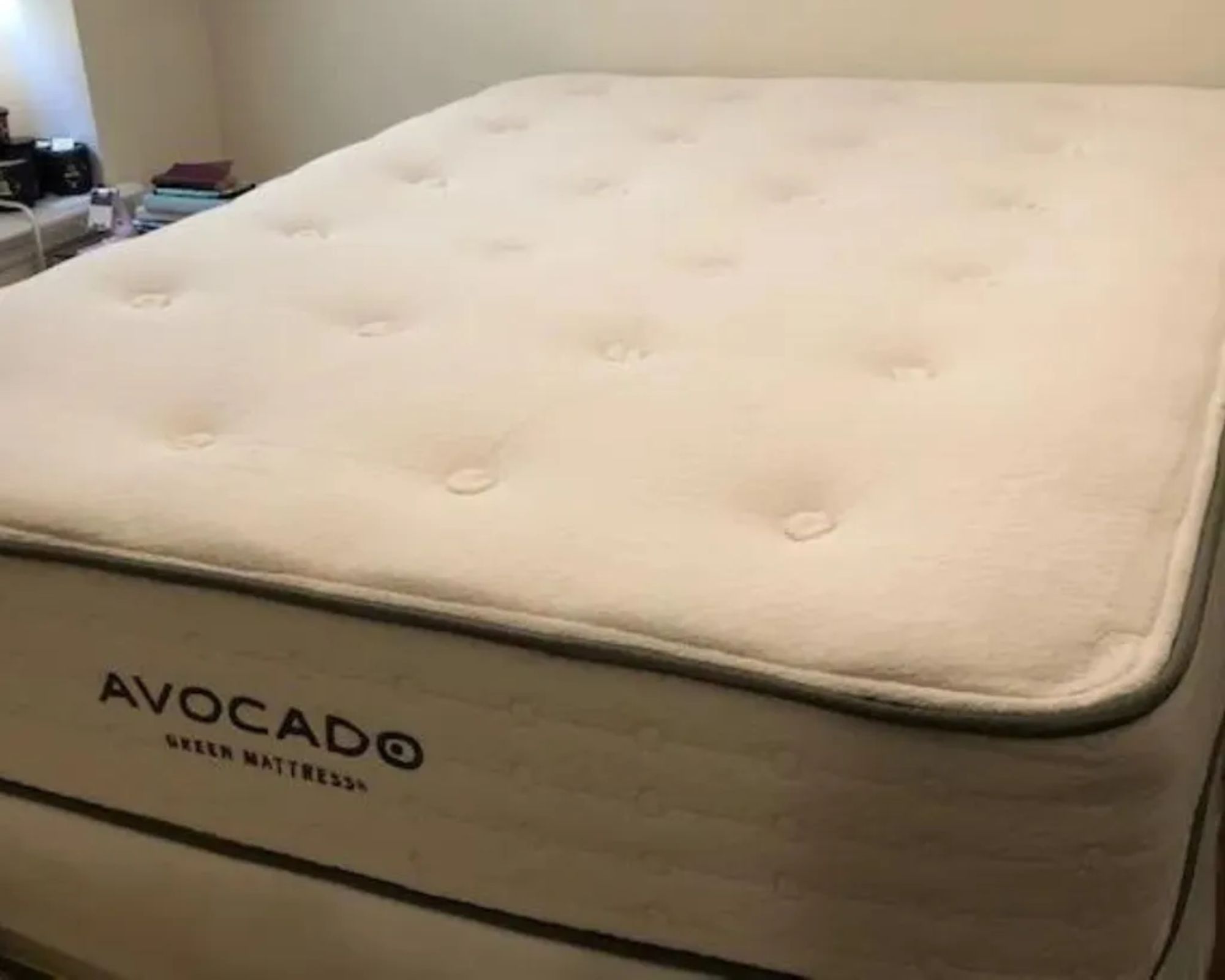
5. Avocado Green Mattress
Specifications
Reasons to buy
Reasons to avoid
As H&G's resident sleep editor, I'm often asked whether it's good to sleep on latex. My answer is almost invariably 'yes'. Natural latex combines the pressure relief and contouring comfort of memory foam with the airflow of an innerspring and far superior eco-credentials. For supple springiness and sustainable practice, I rate the Avocado Green Mattress, available at Avocado, which is an organic latex mattress.
Antonia Santoro, who reviewed the Avocado Green Mattress, explains, 'While many bed-in-a-box companies white-label products from the same factories and ‘greenwash’ their eco-friendly claims, Avocado owns their entire supply chain.
'This way, you can feel good about using a product that meets the most stringent standards for environmental and social responsibility. You’ll also feel good because the Avocado Green is an incredibly comfortable organic mattress. My first impression of the Avocado Green Mattress was that it felt soft to the touch, but firm when I lay down on it for enhanced neck and back support.'
Good news for vegan shoppers, or anyone who prefers to purchase vegan products – there's also an Avocado Vegan Mattress, available at Avocado. In terms of look and feel, it's almost identical to the Avocado Green Mattress, only it's made without wool.
Antonia loves almost everything about the Avocado Green Mattress − except for the price. The Avocado Green Mattress in Firm goes for just over $2,000 for a Queen, but when you add on a Pillow-Top or Box-Top, the price goes up to more than $3,000. 'As a combination sleeper, I don't think you need the extra layers, and the Avocado Green Mattress in Firm suits me just fine,' she says.
Attribute | Notes | Score (out of 5) |
|---|---|---|
Pressure relief | Softer models cost more money | 3 |
Thermo-regulation | Ideal for a hot and humid New York summer | 5 |
Motion isolation | Very impressive for natural latex | 5 |
Edge support | Solid support around the sides | 4 |
The Best Organic Mattress for Back Pain
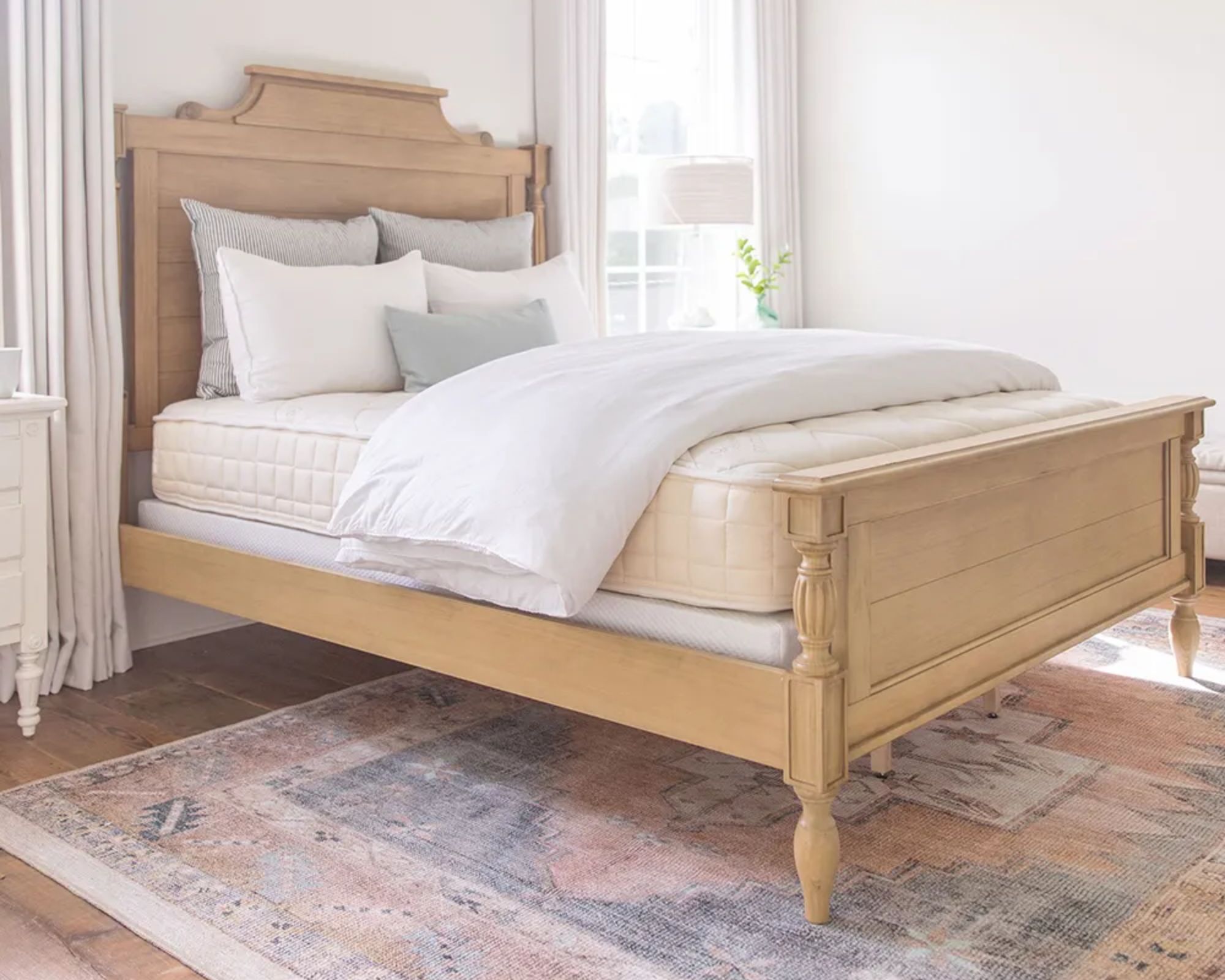
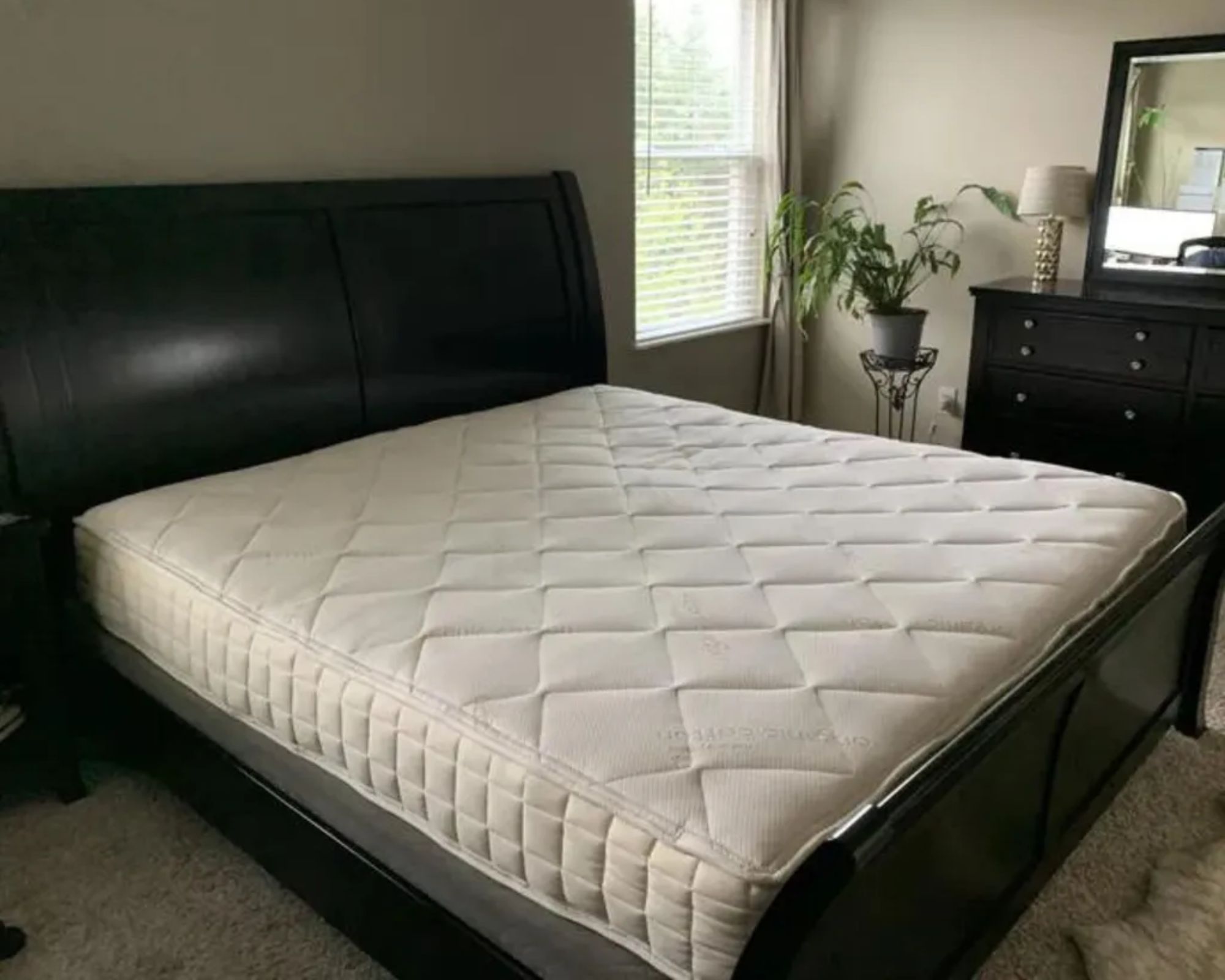
6. Naturepedic Chorus Mattress
Specifications
Reasons to buy
Reasons to avoid
If you consistently wake up with aches and pains, then your mattress might be part of the problem. Most sleepers need a firm, supportive surface to stop their hips and shoulders from sinking and throwing their spines out of alignment. The Naturepedic Chorus, available at Naturepedic, gets the job done, and it is our best organic mattress for back pain, included in this guide.
Courtney Irwin, who tested and reviewed the Naturepedic Chorus mattress, assures, 'This isn't your grandmother's innerspring. Each coil is individually pocketed to stop any squeaking and minimize motion transfer.
'Plus, it's filled with organic materials that are better for your body and for the environment. That means no polyurethane foam, no flame retardants, and no glues or adhesives – just organic wool and cotton for 100% chemical safety.
'If you don't like the look or feel of latex, but you're keen to shop sustainably, then the Naturepedic Chorus Mattress is your best bet.'
Unfortunately, the edge support on the organic Naturepedic Chorus Mattress wasn't the best. 'I weigh 120 lbs, and sitting on the side of the bed still requires effort,' complains Courtney. 'I could have slid right off. I noticed an imprint once I stood up, though this faded within a few minutes.'
Attribute | Notes | Score (out of 5) |
|---|---|---|
Pressure relief | Promotes proper spinal alignment | 4 |
Thermo-regulation | Wool and cotton are naturally breathable | 4 |
Motion isolation | Coils are individually pocketed to minimize motion transfer | 4 |
Edge support | A little lacking | 3 |
Best Organic Mattress – Honorable Mentions
Over the years, our expert team has tested more than 30 mattresses, eight of which are organic. My top six organic mattress picks represent the best for comfort, cooling, and cost. Still, I wanted to shout out one more green mattress that performed well in our tests and might meet your needs:
- birch Luxe Natural Mattress, available at birch: 'This mattress proves that you don't have to sacrifice your comfort for your conscience,' says expert tester Kaitlin Madden, who reviewed the birch Luxe Natural Mattress. 'Filled with natural latex and topped with organic wool, cotton, and cashmere, the birch Luxe Natural Mattress looks and feels premium. It's a lot more supportive than my old memory foam mattress – my hips don't sink into the surface, which puts less strain on my lower back.' Although the latex in the birch Luxe Natural Mattress is not certified organic, the Department of Agriculture would still class it as an organic mattress, due to the presence of organic wool and cotton.
What You're Giving Up – Trade-Offs of Organic Mattresses
There are so many reasons to shop from our selection of the best organic mattresses, all of which we've already covered. But there are a couple of trade-offs to consider, too:
- Price: The best organic mattresses tend to be much more expensive. However, if you value sustainability and are an eco-conscious shopper trying to make your home more sustainable, this is a price jump worth paying. Organic mattresses also tend to last longer – you can expect to sleep on yours for anywhere between 10 and 20 years.
- Weight: Organic materials, such as wool, tend to make organic mattresses far heavier than non-organic alternatives. Of course, you can get around this by opting for white-glove delivery or asking a friend or family member to help you get yours set up, but it's something to consider if you live alone or in an apartment that's high up or tricky to access.
- Limited firmness options: Though not applicable across the board, most organic mattresses feature more limited firmness options. Therefore, it's best recommended to know which firmness you prefer before you start shopping.
Deal Timing and Sale Alerts for the Best Organic Mattresses
Once you know where to buy the best organic mattresses online, if you want to pick up a pricey one at a reduced price, it's best to wait for the mattress sales.
Throughout the year, these tend to appear in the post-Christmas sales in January, President's Day sales in February, Memorial Day sales in May, Amazon Prime Days sales in July and October, Labor Day sales in September, and the Black Friday and Cyber Monday sales in late November and early December.
Waiting for these sale periods means you'll rarely have to pay full price for a top organic mattress, which is a huge plus if you're hesitant to make a purchase owing to the price.
How We Test Mattresses
I lead a 10-strong team of mattress testers across the country. Together, we represent a wide range of ages, sleep styles, and body types. We sleep on each mattress for a minimum of 30 nights in our own homes before we publish our initial reviews. This should give an accurate indication of long-term performance. To find out more about how we test mattresses, consult our expert guide.
For the sake of a fair fight, we assess each mattress against the same criteria – pressure relief, thermoregulation, motion isolation, and edge support. To assess pressure relief, we lie on the mattress and switch between our stomachs, backs, and sides, considering how comfortable the mattress feels in each position. To assess thermoregulation, we switch off our HVAC and sleep, making note of any times we wake up in a sweat.
To assess motion isolation, we fill a glass with water and set it in the middle of the mattress. Then, we take a weight and place it on the mattress, moving incrementally closer to the glass. The more the glass moves, and the more water spills, the worse the motion isolation, and the less suitable the mattress is for couples and light sleepers. To assess edge support, we sit on the side of the mattress and measure how far we fall. The further we sink, the worse the edge support, and the harder it might be to get into and out of bed.
We also consider all the practical parts of buying a mattress, from the details of delivery to the length of the warranty. We like to compare our findings against verified reviews to pick out common customer concerns.
Finally, we bring it all back to the price of the mattress to help you determine value for money.
FAQs
Are organic mattresses a hoax?
Some shoppers harbor doubts as to the actual eco-friendliness of so-called organic mattresses. They're wary of 'greenwashing', a practice which the National Resources Defence Council defines as 'false or misleading statements about the environmental benefits of a product or practice.'
If you get greenwashed, and you're mis-sold a mattress, then you'll have paid a lot of money for what is actually an inorganic product.
Mike Handelsman, CEO and Owner of the textiles company FoamOrder, explains, 'In the mattress industry, the word "organic" refers to materials such as cotton and latex that are grown and processed without synthetic chemicals or pesticides.
'An organic mattress is defined by its materials and production process. You want to see certified organic cotton for covers, and natural latex that's harvested without synthetic chemicals. In an organic mattress, every component is chosen for its purity and sustainability, ensuring that no harmful chemicals or additives are used.'
'The term "organic" becomes reliable when it's backed up by certifications,' says Mike, citing USDA Organic and GOTS as examples. 'If you don't see these terms on the product listing, ask. If the answer contains nothing of substance, then it's fake – the so-called "organic" mattress is a hoax.'
And, while the term 'organic' is legally protected in the US, it's still all too easy for a brand to position itself as 'eco-friendly, 'natural', or 'green' without any specific certifications.
Here are our tips to help you cut through the noise:
- Check certifications: These should be from recognized organizations.
- Read the label: Look for specific details about organic fibers, such as organic cotton, wool, or latex, and ensure that these materials are backed by appropriate certifications.
- Research the manufacturer: Find out how the brand manufactures and manages its supply chain.
- Do a smell test: This one works best in person. The materials used in organic mattresses typically produce a natural scent – a mattress that emits strong chemical odors or smells artificial may contain synthetic or even toxic materials and VOC (Volatile Organic Compounds).
- Check the price tag: Organic mattresses are often more expensive, due to the higher cost of organic materials and certification processes.
Why are organic mattresses so expensive?
It takes much more time, energy, and money to harvest raw materials, such as natural latex, for an organic mattress than it does to whip up a formula for polyurethane foam in a lab. Where much of the mattress industry is unregulated, and manufacturers can cut corners to save money, organic mattresses must meet strict certification standards from farm to factory.
On the plus side, organic mattresses tend to be more durable, so they make a better investment. A top organic mattress could last you anywhere between 10 and 20 years, if you look after it. You might be spending a fair sum of money now, but it should save you from spending even more on a replacement for your cheap foam mattress in a few years.
Therefore, if you're questioning, 'Is an organic mattress worth it?' our answer will always be yes.
Meet the Experts

Tester Alex has ranked and reviewed three mattresses and two toppers for H&G. As a hot sleeper living in North Texas, Alex needs a mattress to keep her cool.
In this guide, she reviewed the PlushBeds Botanical Bliss Organic Latex Mattress, and reviewed the essentia Classic Rem5 Mattress, too.

Jill is a journalist with 20 years of experience in the health, wellness, and lifestyle space. As she approaches the menopause, Jill needs a mattress with serious cooling capabilities to wick away her night sweats.
In this guide, she reviewed the Saatva Zenhaven Natural Latex Mattress.

Alex had reviewed eight mattresses for H&G. In this guide, she reviewed the Earthfoam Organic Mattress, which is by far the cheapest that she's tested. It's a top performer for pressure relief and thermoregulation, but Alex thinks it lacks a little structure.

Antonia used to work as Senior Audience Development Manager at Future, our parent publishing company. As an eco-conscious shopper and a hot sleeper, her favorite mattress type is latex.
In this guide, she reviewed the Avocado Green Mattress
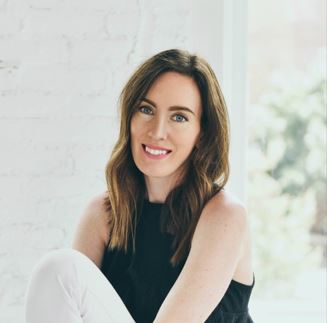
Courtney is one of our freelance writers and reviewers. As someone who shares a bed with her partner, she needs a mattress with excellent motion isolation to sleep undisturbed.
In this guide, she reviewed the Naturepedic Chorus Mattress
If you'd love to buy one of the best organic mattresses, but you just can't afford a brand new bed, then you could always invest in one of the best organic mattress toppers.
Alternatively, for a quick and easy upgrade, you could browse the best organic bedding. I've put breathable sheets, supportive pillows, and cooling comforters all in one place.

Ottilie joined Homes & Gardens in 2024 as the News Writer on Solved, after finishing a Master's in Magazine Journalism at City, University of London. Now, as the Sleep Editor, she spends her days hunting deals and producing content on all things sleep – from mattresses and sheets to protectors and pillows, all of which she tests in her own home. She also has particular expertise in home fragrance, covering everything from candles to reed diffusers.
Previously, she has written for Livingetc and Motorsport Magazine, and also has a Master's degree in English Literature and History of Art from the University of Edinburgh, where she developed a love for inspiring interiors and architecture.
- Emilia HitchingSleep Editor
